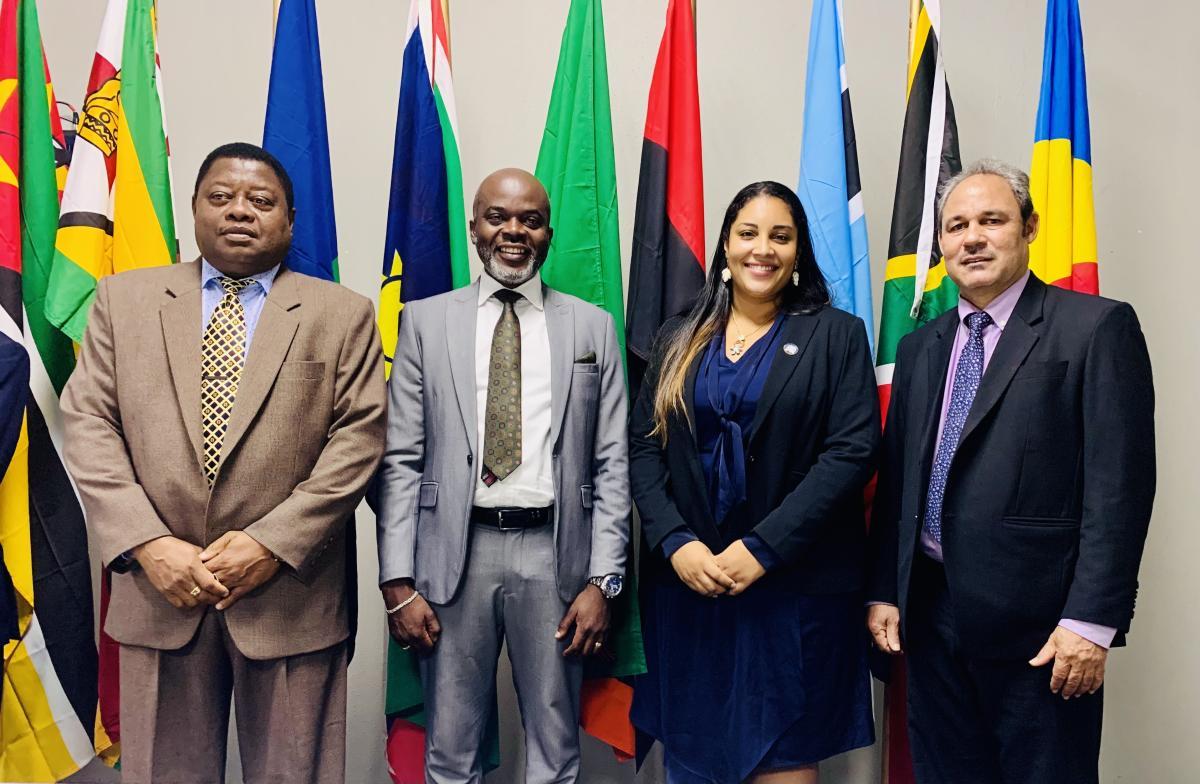|
Getting your Trinity Audio player ready...
|
Delegates from SADC region member states gathered at Elangeni Hotel, Durban (South Africa) for the official opening of the 15th Annual Conference of Southern African Development Community Organisation of Public Accounts Committees (SADCOPAC).
Over the next three days, delegates will deliberate on ways to tighten oversight for advanced ethical public financial management, governance, and accountability within the governments in the SADC region.
Delivering his keynote address at the opening ceremony, SADCOPAC Chairperson, Mr. Warren Mwambazi, who is also Chairperson of Zambia’s Parliamentary Public Accounts Committee, said the past two decades had seen SADCOPAC establish itself as an association that advocates prudent public financial management in the SADC region, premised on accountability and good governance.
He said, “SADCOPAC exercises oversight on governments in SADC countries for them to meet the expectations of the people for sound and accountable governance, by continuously facilitating efficient spending and promoting sound financial management practices.”
The conference will adopt SADCOPAC’s long-term programme premised on its strategic objectives of strengthening oversight of financial management and accountability by individual public accounts committees in SADC countries.
In keeping with the new world order premised on the 4th Industrial Revolution, said the chairperson, SADCOPAC will further deliberate on how its sister committees should reposition and repurpose themselves to embrace the efficiencies of current technology developments to advance their constitutional mandates.
The focus of the 15th Annual SADCOPAC Conference
The theme of the 15th Annual SADCOPA Conference is: ‘Enhancing Oversight for Advanced Ethical Public Financial Management & Accountability Towards the Development of Africa.
SADCOPAC Chairperson, Mr. Warren Mwambazi, said, The theme acknowledged that all countries have their development goals, which should be derived from the objective of achieving the global development goals. The African states should also prioritise the AU Agenda 2063.”
The conference programme will focus on nine priority areas for discussion. The session for the first area will focus on the evolution of public financial accountability in the southern Africa region. It will also look at the role of SADCOPAC in coordinating and building the capacity of public accounts committees (PACs) to strengthen ex-ante oversight.
Tied to that will be a focus on the theme of public sector coordinated partnership for enhanced ethical public financial management and accountability. In this plenary, Mr Mwambazi said, members of SADCOPAC will “focus on the public institutions established by legislation to ensure enhanced ethical standards in public financial management and accountability are advanced.”
The involvement of civil society in safeguarding ethical public financial management culture in SADC will be another part of the conference’s thematic area, he said.
Delegates will also deliberate on how SADCOPAC could extend its ethical public financial management ethos. This thematic session titled “Positioning of SADCOPAC for Enhanced Oversight on Public Financial Management and Accountability in Africa and Globally”, will discuss the role that should be played by SADCOPAC as a coordinating body, in directing, influencing, and advocating for ethical public financial management and accountability in Africa, the Commonwealth and globally, Mr. Mwambazi said.
Africa needs tangible strategies to tackle its challenges
Addressing the Conference, the House Chairperson of the Committee at the National Assembly, Mr. Cedric Frolick, urged delegates to empower each other to ensure that public funds are properly spent, accounted for, and meet their objectives.
He also called for the conference to be used as a tool to take stock of SADCOPAC progress and challenges, as several developmental challenges emanating from the sustainable development goals are yet to be achieved. He said some countries were unlikely to meet the deadline for achieving the sustainable development goals of 2030 and that poor public financial management practices, including fruitless and wasteful expenditure and underspending of budgets, are compounding the problem and impacting the poor disproportionally.
“If this poor public finance management persists, democracy is undermined, and people lose trust in governments,” he continued.
He urged delegates to devise realistic strategies, and for statutory bodies such as the Office of the Auditor General to conduct their work without interference, fear, or favour.
“Africa needs tangible strategies and this requires that Conference delegates ask themselves hard questions, including interrogating the constraints under which they operate, and how to overcome them.
He also criticized a growing trend for government departments to focus on achieving clean audits, “when the quality of the services they deliver is not clean at all” and citizens’ quality of life does not improve.
He also urged delegates to think about how they would make the public aware of the resolutions from this conference and how the issues discussed will become part of the legislative sector agendas in their respective countries.






